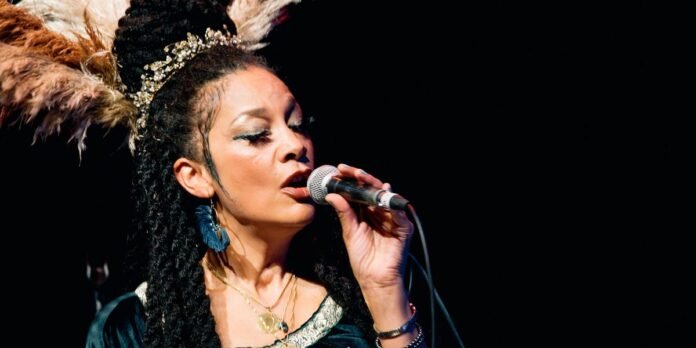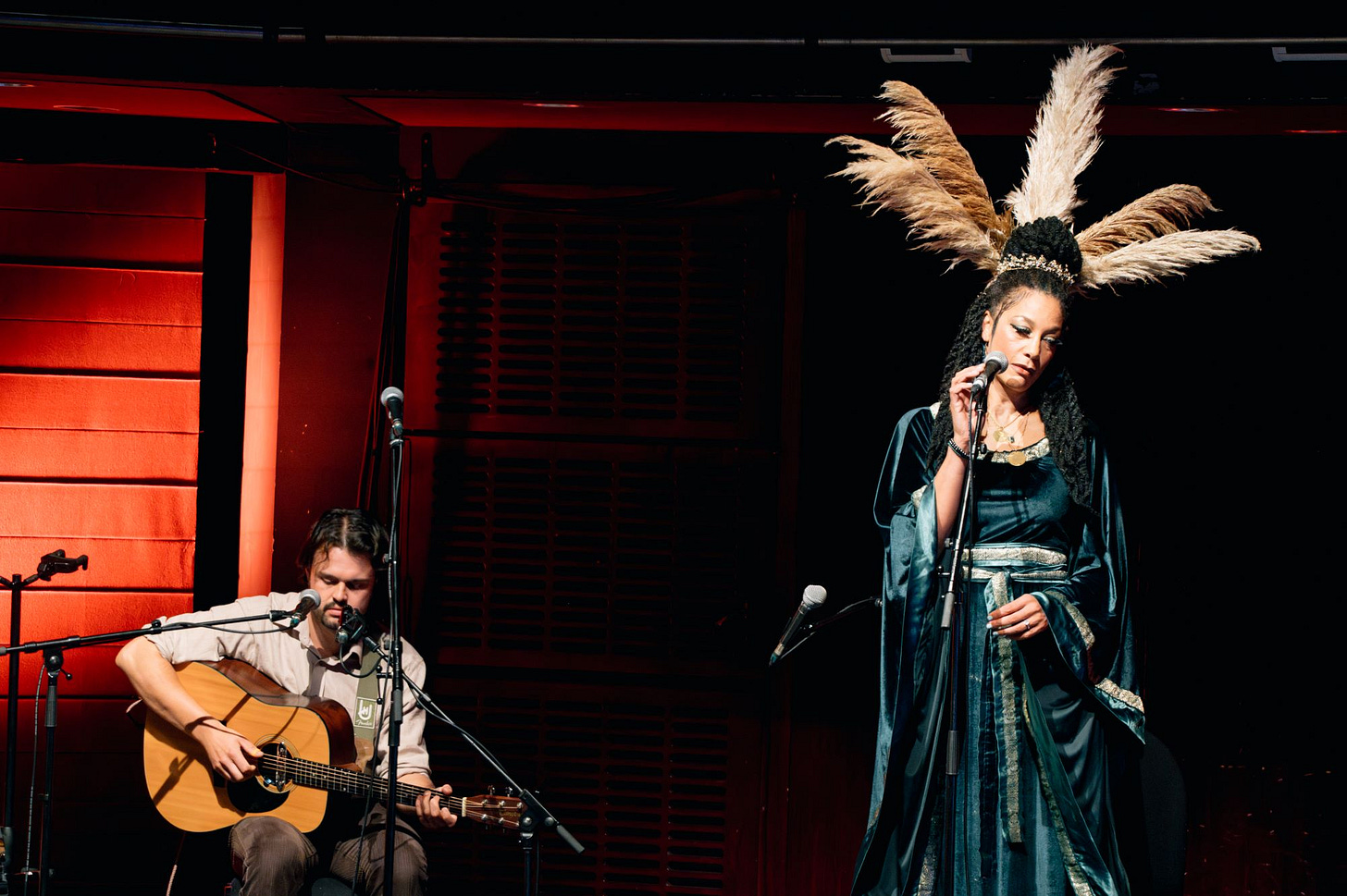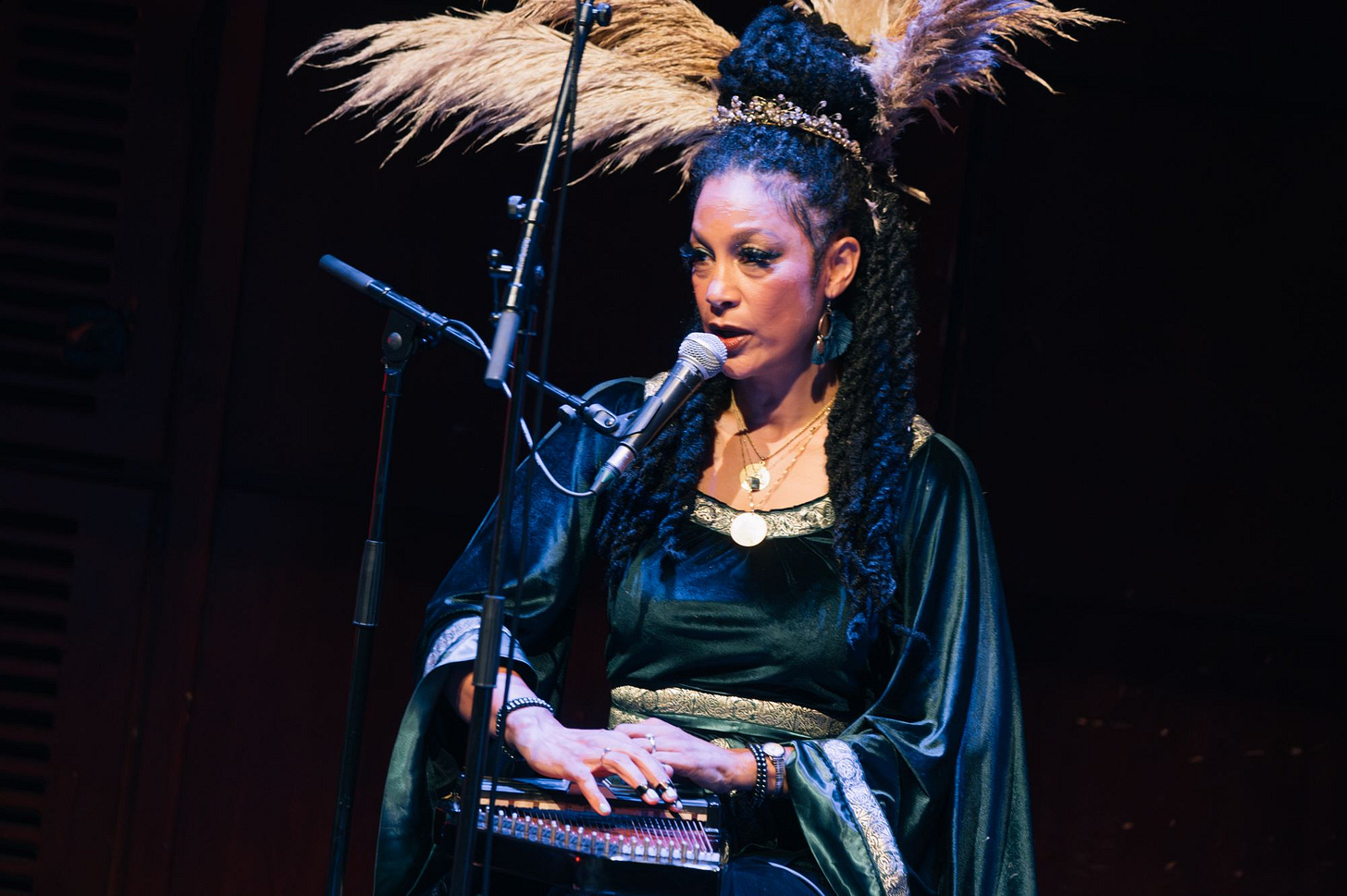Angeline Morrison is not a musician who dresses for radio. She made her grand (if careful) BBC Proms entrance in a green velvet gown and with her piled up hair topped by a fabulous feathery headpiece.
The BBC missed a trick by having their cameras stationed elsewhere.
Such was her statuesque stage presence that Eliza Carthy, positioned nearby, jokily interjected that she was taller than everyone else even when sitting down – which she often was, strumming the autoharp on her knees.
But the elegant appearance was in deference to the subjects of The Sorrow Songs, the 2022 album that was the substance of this moving and enjoyable concert.
I’d expected it to be sad. How could it have been otherwise?
With Arts Lottery funding, the Truro-based folk singer and composer delved into Black British history where slavery and its horrors loom large.
She found out about the little boy whose body was washed ashore on the Scilly Isles from a sunken slave ship, and who became the subject of the opening song, Unknown African Boy (d. 1830).
Then there was the baby with the skin condition vitiligo, recalled as The Beautiful Spotted Black Boy, bought out of slavery in the Grenadines to be a British circus exhibit.
It wasn’t to be a long career, the boy dying aged about three or four in 1813.
Recalled in another song, Mad-Haired Moll o’ Bedlam, is the girl Angeline saw gazing from a photo taken, she reckons, in the 1860s.
Moll wasn’t mad. She was locked up for raising her voice at a policeman and died young, never regaining her freedom.
Little excuse was needed to lock up a woman in those days, reasoned the singer, so surely a woman of colour would have been particularly at risk? In writing a song about her, she had wanted to give her “a voice and some agency”.
This had been her general aim with The Sorrow Songs, to embody the Black experience within the folk music tradition by “re-storying” British history, supplementing the often meagre facts with her imagination.
Sadness, then, was ‘on the tin’. But this was anything but a depressing gig, as you’ll discover if you catch up with it on BBC Sounds.
Angeline Morrison, as well as being a gifted singer, composer and multi-instrumentalist, is a compelling storyteller, gently engaging her audience rather spitting righteous anger.
And not all the songs were of victimhood. In Black John she recalls the slave boy who became a talented gardener in North Wales. He married a local girl, had a yellow rose named after him and is acknowledged as Britain’s first Black horticulturalist.
Angeline had us assisting with the clapping chorus of Jump Billy, inspired by a young former slave who served in the Royal Navy until he had to have a leg amputated after an accident.
Left to his own devices in London, he earned a meagre living as the dancing busker with the wooden leg.
This, revealed Angeline, was the song that never made the album because she’d only written the chorus when the deadline came. It’s done now, a worthy addition to the canon.
Angeline Morrison was backed in Sage Two by an excellent line-up, getting together on stage for the first time.
Her Sorrow Songs Band (Hamilton Gross, violin/vocals, Clarke Camilleri, guitar/banjo/vocals and Matt Quinn standing in for Cohen Braithwaite-Kilcoyne on concertina) were joined by guests Carthy, who produced the album, and drummer and percussionist Alex Neilson.
All contributed to a colourful tapestry of sound which ended in genuine applause, rather than the kind whipped up by a BBC floor manager.
Eliza Carthy, introduced as a folk legend, called The Sorrow Songs not just a labour of love but “a labour of necessity”.
Quite right. It was a privilege to be in the room.










